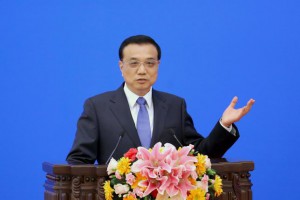My previous blog post focused on Chinese limitations for international tech companies to partner with domestic firms. Oppositely, China hopes to help domestic firms spread influence globally to slow the current economic slowdown. The ruling State Council announced that the government should simplify the process through which companies set up overseas facilities and support investment outside of domestic reach. Apparently, restrictions and costs stand as a barrier for Chinese industry to reach out internationally. Premier Li Keqiang hopes to eliminate these obstacles to help boost growth.
Ironically, he supports partnerships with international firms to increase technical knowledge of domestic companies, who face slow market growth in China. In particular, consumer goods, railways, and nuclear energy represent sectors ready to make a global impact.
Developing countries appear to be a large market for China’s multitude of engineering firms with the knowledge and capability to provide necessary equipment and services for projects. This notion parallels the recent push by Beijing to foster a Silk Road that could connect the region’s countries through infrastructure investment. Previous blogs have touched on this initiative, which the Chinese President believes subsequent annual trade with such countries could reach $2.5 trillion in ten years.
Overall, these initiatives, which aim to increase Chinese presence and competitiveness on an international scale, represent fear of the economic slowdown and a desire to become a global “industry” powerhouse.
http://www.reuters.com/article/2015/04/04/us-china-economy-overseas-idUSKBN0MV02G20150404
As you note with the reference to the Silk Road projects, this is more a long-term strategy than a short-term one. At one time the Bank of China could argue that it needed to preserve foreign exchange reserves to forestall running out of hard currency, which would trigger a foreign exchange crisis (cf. the 1997-8 Asian financial crisis and more recent problems in Argentina, among others). However China now sits on $4 trillion in foreign reserves, so there’s a short-term surfeit, and a long-term goal of moving to a floating exchange rate. Allowing outgoing FDI is a natural response.
How does outgoing FDI help the domestic economy? It creates at most a few headquarters jobs at home (and may in fact lead to shutting down a factory inside China to open one in Vietnam or Myanmar or Bangladesh). Most firms have money to burn. Or is that the answer? — management prefers to fritter away excess cash on nice-sounding ventures rather than return funds to stakeholders?!